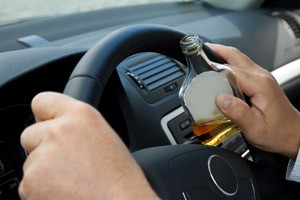
A new bill introduced before the state legislature last year by State Senator Nicholas Scutari may drastically change the way drivers convicted of DUI in the state are convicted. The proposed changes to the State’s Driving While Intoxicated law, N.J.S.A. 39:4-50, seek to lessen some penalties for first time drunk drivers while making others more universal – such as making Ignition Interlock Devices mandatory for all drivers convicted of DUI/DWI, even first time offenders.
Similar to the other proposed Senate Bill 404, discussed here earlier this year, it is important to recognize that there is no guarantee that this proposed bill will ever pass. Also like that bill, the goal of Senator Scutari’s introduced legislation is to provide an alternative to drivers convicted of driving under the influence of alcohol, showing some added leniency to such drivers while simultaneously making the roads safer.
Which Parts of N.J.S.A. 39:4-50 Might Be Affected?
In New Jersey, the legal Blood Alcohol Content (BAC) limit for drunk driving in the state is .08%. Under current law, someone convicted of DWI for the first time can have their license suspended for either 3 months (if his or her blood alcohol content is between .08% and .099%) or 7 to 12 months (if his or her blood alcohol content is .10% or greater). A judge has a lot of flexibility in deciding how long to suspend a driver’s license in those circumstances.
At the same time, a first time offender who is convicted with a blood alcohol content of .15% or greater must have an ignition interlock device installed on his or her vehicle during the period of license suspension until between 6 months to 1 year following license restoration. An ignition interlock device is a device put on a car that requires a driver to provide a clean, alcohol breath sample before he or she can start the car.
How Will These Parts of the Law Change If the Proposed Bill is Passed?
Under Senator Scutari’s introduced legislation, a first time drunk driver who is convicted of driving with a BAC of between .08% and .099% will only have his or her license suspended for 30 days – a significant reduction from 3 months. Similarly, a driver who is convicted of driving with a BAC of between .10% up to just less than .15% will have his or her license suspended for 45 days, while a driver who is convicted of driving with a BAC of .15% or higher will have his or her license suspended for 90 days.
At the same time, the proposed legislation hopes to make installation of an ignition interlock device mandatory for ALL drivers convicted under the DWI law. The device must remain on the driver’s vehicle for the period of license suspension as well as an additional period of time between 3 months and 18 months after the driver gets his or her driving privileges reinstated.
What These Changes Would Mean if You Are Convicted
Losing one’s driving privileges is often the most severe penalty that first time drunk drivers face, because the penalty often means that a driver also loses his or her ability to go to work or otherwise provide for his or her family. Reducing the period of license suspension for first time offenders recognizes this reality and tries to address the way the law punishes more than just the drunk driver.
At the same time, recent reports have estimated that ignition interlock devices have prevented more than 39,000 instances of drunk driving in New Jersey since 2010. Therefore, requiring drivers to install an ignition interlock device attempts to make the roads safer for everyone. The proposed law would not prevent a driver from being able to use his or her vehicle – for instance, to drive to work or buy groceries if necessary – but it would guarantee that the car could only be operated after a clean, alcohol-free breath sample is provided.
The largest downside to the proposed law is that New Jersey requires the driver to pay for his or her own ignition interlock device, including the installation. In addition to the nearly $1000 in fines that first time drunk drivers must already pay, an ignition interlock device could cost $70-150 to install and about $60-80 per month for additional monitoring and calibration.
Regardless of whether or not this bill becomes law, a person charged with driving under the influence of alcohol or drugs should always contact an experienced drunk driving attorney, who will be able to provide the best advice or possibly defend the case and get the charges dismissed completely.
New Jersey Drunk Driving Attorney Edward M. Janzekovich Is Looking Out for You
A charge for driving under the influence of alcohol can carry extremely serious penalties that affect you as well as your family and loved ones. At the same time, new laws, rules, and regulations take effect all the time. For that reason, it is important to consult a drunk driving lawyer knows what to look for in your specific situation. If you or someone you know is charged with drunk driving or driving under the influence of any substance in New Jersey, an experienced DWI/DUI attorney will know the best way to help and can make all the difference. To speak with an experienced New Jersey DWI lawyer about your situation, call us at 732-257-1137 or contact us online today. We serve clients throughout the state of New Jersey.




